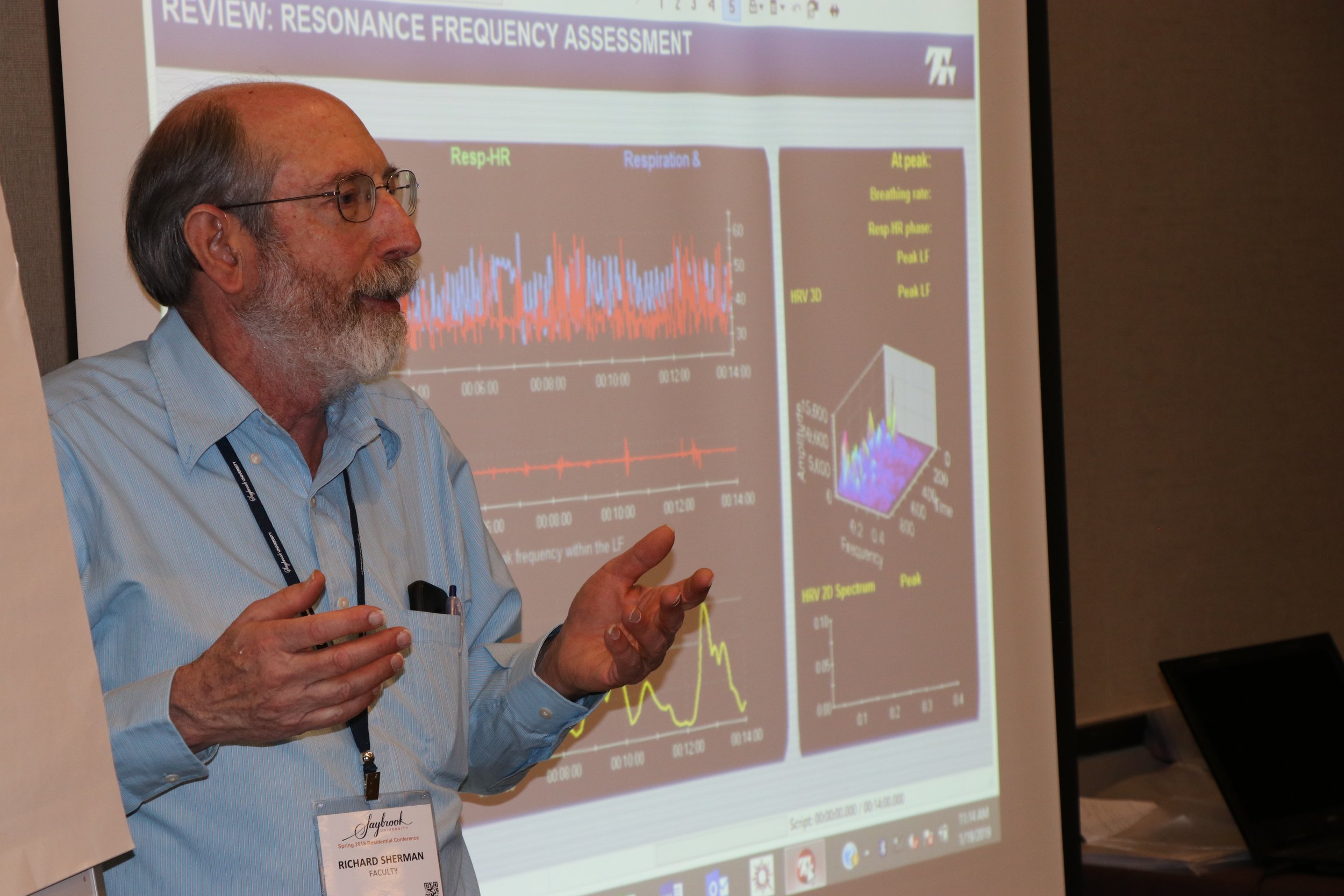Biological Basis of Behavior
The biologic basis of behavior (PEP015) 45 hour credit CE course relates to human activities, evolution and behavioral genetics evolution of behavior and communication, genetics of behavior, anatomy and physiology of the Central and Peripheral Nervous Systems as well as hormones and behavior in order for professionals to integrate these principles into their client interactions to improve clinical and coaching outcomes.
$900.00
Instructor
Dr. Richard Sherman
Dr. Jerry DeVore
Course Introduction Video
-
Each course level outcome below is connected to the program level outcomes and demonstrated
through the indicated module level outcome assignments.
Students will understand how the field relates to human activities, evolution and behavioral genetics –
evolution of behavior and communication, genetics of behavior, anatomy and physiology of the Central
and Peripheral Nervous Systems, hormones and behavior – pheromones, sex, nerve – hormone
interactions, mechanisms of Sensation/Perception – vision, hearing, touch (pain, electrical), smell, taste,
balance/location, etc., motor control systems, eating and drinking disorders, biological rhythms and
sleep, mechanisms of drug addiction, learning, Language, and Memory, the Malfunctioning Brain,
emotions – stress, aggression, mental illness, and psychophysiological dysfunctions and interventions.
They will learn to integrate these principles into their client interactions to improve clinical and coaching
outcomes.
-
At the end of this course, students will be able to:
Identify, describe and discuss the biological basis of behavior as it related to a broad range of human activities, evolution and Behavioral Genetics. Supported by modules 1, 2, 3, 7, & 8.
Identify, describe and discuss the biological basis of behavior as it relates to the Central and Peripheral Nervous system and the endocrine system. Supported by modules 4, 5, & 9.
Identify, describe and discuss the biological basis of behavior as it relates to the mechanisms of Sensation and Perception. Supported by module 6.
Identify, describe and discuss the biological basis of behavior as it relates to Language, Memory and the Malfunctioning Brain. Supported by modules 11 & 12.
Assess, synthesize and integrate the principles of LOs 1-4 to improve clinical and coaching outcomes. Supported by modules 10, 13, & 14.
-
None
-
Pinel, John P.J., Biopsychology – 9th edition but the 5th through 8th editions are fine. 2005 / 7; Published by Pearson of Boston & New York.ISBN 0-205-42651-4. Needham Heights, MA: Allyn, & Bacon ,ISBN 0-205-34984-6.
-
45 credit hours.
The Behavioral Medicine Research and Training Foundation is approved by the American Psychological Association to sponsor continuing education for psychologists. The Behavioral Medicine R&T Foundation maintains responsibility for this program and its content.
-
You have one year to complete the course and must be repurchased if still available.
No refunds are provided for courses not completed within one year of purchase.
-
Testimonial
“The course material is covered very clearly through lectures and also provides extra references to expand more deeply into the topic of study.”
Lorena Casado Román


